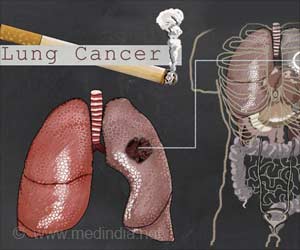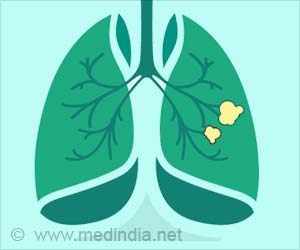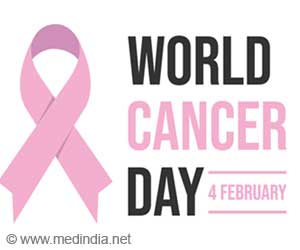Lung Cancer Awareness Month is celebrated annually in November. It aims to create awareness about the dangers of lung cancer and also highlights the importance of early detection for better treatment outcomes.
- Lung Cancer Awareness Month is celebrated in November every year
- It aims to create awareness and educate the general public about the dangers of lung cancer
- It also lays stress on the importance of early detection for achieving better treatment outcomes.
This year, Lung Cancer Awareness Month is being sponsored by several leading pharmaceutical companies, such as Bristol-Myers Squibb, Lilly, Novartis, Takeda, Genentech, and Astra Zeneca.
Read More..
Genesis of Lung Cancer Awareness Month
The genesis of Lung Cancer Awareness Month goes back to 1995 when it was celebrated for only one day as Lung Cancer Awareness Day. Slowly, with the passage of time, the awareness activities and events progressively expanded, with the enthusiastic participation of people from across the globe. As a result, the celebrations spanned over the entire month of November and came to be known as Lung Cancer Awareness Month.Aim of Lung Cancer Awareness Month
The major aim of Lung Cancer Awareness Month is to encourage people displaying the common symptoms of lung cancer to seek timely medical intervention. Since early detection of lung cancer is crucial for successful treatment of the disease, people are educated to recognize the symptoms and signs at an early stage, so that they can receive timely treatment.Lung Cancer: Basic Features
Lung cancer is the uncontrolled proliferation of abnormal cells within the lungs. It is a complex disease with many different subtypes. These are broadly classified into non-small cell lung cancer (NSCLC) and small-cell lung cancer (SCLC).- NSCLC is the major type that accounts for 85 percent of all lung cancers. It includes adenocarcinoma and squamous cell carcinoma.
- SCLC is a minor type that accounts for only 15 percent of all lung cancers. It is caused by small round cells that form fleshy lumps. This type of lung cancer spreads much faster than NSCLC.
Treatment of lung cancer depends on the size, type and stage of the tumor. Chemotherapy, radiotherapy and surgery are the most common treatment modalities for lung cancer.
It cannot be stressed enough that early detection is vital for the success of therapy and long-term survival. In fact, research conducted by the American Lung Association has clearly shown that if lung cancer is detected at an early stage (Stage 1), the 5-year survival rate can be as high as 55 percent as opposed to detection at a late stage (Stage 4), where the survival can be as low as just 4 percent.
Lung Cancer: Facts & Figures
- Lung cancer is the most common cancer worldwide
- Lung cancer is the leading cause of cancer death across all ethnic groups
- 2 million new lung cancer cases are diagnosed annually worldwide
- 1.7 million lung cancer deaths occur annually worldwide
- 1 in 5 cancer deaths occur due to lung cancer
- 9 out of 10 lung cancer patients die within five years of diagnosis
- Lung cancer kills more people annually than breast, prostate and colon cancers combined
- Every 2.3 minutes someone is diagnosed with lung cancer
- 391 people die from lung cancer every day
- Lung cancer kills 2 times as many women as breast cancer
- Lung cancer kills 3 times as many men as prostate cancer
- Smoking is the single greatest risk factor for lung cancer
- Women smokers are twice as likely to develop lung cancer than male smokers
- 40 percent of teen smokers who continue to smoke die before the age of 60
Ways to Celebrate Lung Cancer Awareness Month
Some of the ways Lung Cancer Awareness Month can be celebrated are briefly highlighted below:- Motivational talks
- Lung cancer screening camps
- Sharing real life stories
- Posting on social media
- Organizing walkathons & marathons
- Wear white to help raise awareness and funds
Health Tips for Preventing Lung Cancer
Although lung cancer can’t always be prevented, such as in case of a genetic cause of the disease, the risks can, however, be appreciably reduced by addressing the following aspects:- Smoking: Cigarette, cigar and pipe smoking must be avoided at all costs. Cigarette smoking alone causes 80-90 percent of lung cancer deaths. Smokers must quit smoking immediately to reduce the risk of lung cancer.After 10 years of quitting, the risk falls to half that of smokers
- Second-hand Smoke: This is the smoke that comes from a burning cigarette or other tobacco products, as well as smoke that is exhaled. Exposure to second-hand smoke from smokers is equally dangerous and, therefore, must be avoided. The home, car and workplace should be kept smoke-free
- Occupational Exposure: Occupations that expose workers to carcinogens such as asbestos, arsenic, nickel, chromium, cadmium, beryllium, and tar or soot can significantly elevate the risk of lung cancer. Therefore, personal protective equipment (PPE) such as masks must be worn to avoid exposure
- Air Pollution: Scientific evidence suggests that living in cities where air pollution is high, significantly increases the risk of lung cancer. Here also, masks may need to be worn to reduce exposure
- Radon: Radon is a radioactive gas emitted from the degradation of underground uranium sources that can enter homes through cracked floors. Exposure to high levels of radon gas significantly increases the risk of lung cancer, especially in the case of smokers. In non-smokers, approximately 26 percent of lung cancer deaths have been linked to radon exposure. Therefore, it is important to get homes tested and treated to reduce radon exposure
- Diet: A balanced diet having low-fats, high fibers, green vegetables and plenty of whole grains and fruits has been shown to reduce the chances of lung cancer, as well as other cancers and heart disease
- Exercise: Regular exercise can reduce the risk of lung cancer and other cancers. Adults are recommended at least 150 minutes of moderate-intensity aerobic exercises and 2 days of strength-training exercises each week
So, during the month of November, let’s all come together to show our support and solidarity for lung cancer patients and their families and encourage them to fight the disease and never to lose hope.
References:
- Lung Cancer Awareness Month - (https://lcam.org/)
- November is Lung Cancer Awareness Month - (https://lcfamerica.org/get-involved/november-lung-cancer-awareness-month/#1571339669581-0b967d4b-c67b)
- Lung Cancer Facts - (http://www.lungcancercoalition.org/lung-cancer-facts.html)
- Prevention: Lung Cancer - (https://www.nhs.uk/conditions/lung-cancer/prevention/)
- Lung Cancer Awareness Month - (https://lungevity.org/for-supporters-advocates/lung-cancer-awareness-month-0)
- Lung Cancer Prevention (PDQ®): Patient Version - (https://www.cancer.gov/types/lung/patient/lung-prevention-pdq)
Source-Medindia
















